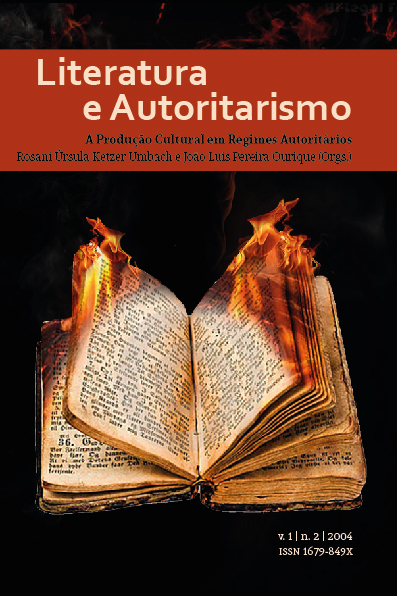Machado de Assis and the daily life of violence: Revisiting two scenes from Brás Cubas and Aires
DOI:
https://doi.org/10.5902/1679849X74215Keywords:
Brás Cubas , Aires, Machado de Assis , Daily life of violenceAbstract
Brás Cubas and Aires bear witness to violent acts committed by authority, whether legally constituted – the police, for example, who arrest the thief acting in Largo da Carioca – or legitimately. The latter is the case of the owners, as both Prudêncio, owner of a slave that he considers a vagrant and an alcoholic, and the cart driver, owner of a stalled donkey, consider their actions valid and are not contested by the crowd that watches them. The proximity of the episodes denounces, from the outset, the reification of the servant by his master, according to the logic of slavery and all forms of oppression.
Downloads
References
ASSIS, Machado de. Memórias póstumas de Brás Cubas. São Paulo: Mérito, 1959.
ASSIS, Machado de. Esaú e Jacó. São Paulo: Mérito, 1959.
LEVI, Primo. É isto um homem? São Paulo: Rocco, 1997.
Downloads
Published
How to Cite
Issue
Section
License
DECLARAÇÃO DE ORIGINALIDADE E EXCLUSIVIDADE E CESSÃO DE DIREITOS AUTORAIS
Declaro que o presente artigo é original e não foi submetido à publicação em qualquer outro periódico nacional ou internacional, quer seja em parte ou na íntegra. Declaro, ainda, que após publicado pela Literatura e Autoritarismo, ele jamais será submetido a outro periódico. Também tenho ciência que a submissão dos originais à Literatura e Autoritarismo implica transferência dos direitos autorais da publicação digital. A não observância desse compromisso submeterá o infrator a sanções e penas previstas na Lei de Proteção de Direitos Autorais (nº 9610, de 19/02/98).






